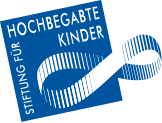Giftedness
Are children with high learning potential exceptional in all areas?
Not necessarily. Like all children, children with high learning potential have interests and/or abilities in one or more subject areas. Whilst children with high learning potential are very mature intellectually, they can have the social and emotional maturity of children their own age or sometimes even younger and need to be supported accordingly. Although some children with high learning potential seem to excel at almost anything and everything, the basis of that success is often motivation, perseverance and hard work! Children with high learning potential can be highly perfectionist as from an early age they may have reached milestones well before other children their age. Hence, there can be a tendency to assume that everything else in life will follow such a smooth and seemingly effortless progression. As a parent of a child with high learning potential, it is vital to support your child to develop realistic expectations and to understand the true relationship between perseverance, effort and outcome. In supporting your child to develop high self esteem and also providing them with a rich variety of activities; this will help your child to fully reach their potential.
For more information visit
Can children with high learning potential also have special education needs?
Some children with high learning potential may also have a special educational need in one area and be exceptional in another- a trait known as Dual or Multiple Exceptionality. Children with high learning potential who also have learning disabilities such as dyslexia, dyspraxia, ADHD and autistic spectrum disorders can experience great frustration. These children are still highly intelligent, but are having to cope with an added learning difficulty which can negatively affect their learning and communication. This can cause problems for the child as they can often struggle to display their intellectual abilities because of their special education need. Schools usually have clear guidance and support for special educational needs and sometimes for ‘gifted’ or ‘able’ provision; but it is far more uncommon to find a school that offer both types of provision for one child. Sometimes, a dual or multiple exceptional child’s learning difficulty masks their high intelligence, so that the child appears average and the source of their resulting frustration and unhappiness can often be misunderstood. A dual or multiple exceptional child can often ‘coast’ through school achieving average grades as their high intelligence can mask their learning difficulty.
For more information visit
Should I have my child's IQ tested?
Parents often ask us about IQ testing. Our response is that this is not always necessary as a high IQ score is only one measure of intelligence and not all children with high learning potential will score highly on standardised IQ tests. Reasons for having your child’s IQ formally assessed include the school needing and requesting impartial proof prior to providing your child with specialist gifted provision, behavioural problems that could be caused by lack of challenge, or the existence of a possible special educational need alongside high intelligence.
For more information visit
What is Giftedness?
‘Giftedness’ is a difficult concept to define; the very word ‘gifted’ can bring up a number of negative connotations based upon superiority and elitism. In a society where differences are not always easily tolerated, it can be a difficult step to take in recognising that your child is indeed different and is possibly ‘gifted’. However, it is incredibly important for parents to acknowledge and support their child’s exceptional potential, abilities and talent. Most parents who contact Potential Plus UK are reluctant to use the word ‘gifted’ about their own child as it seems boastful to do so. Their past experiences of talking to others about their gifted child often prove to be quite negative as many people cannot understand what it is like to raise a ‘gifted’ child. People may wrongly assume that everything is plain sailing when it comes to parenting a highly intelligent child. There is a distinct lack of awareness of the often intense and hypersensitive nature of gifted children. Many gifted children also have a special educational need such as dyslexia, ADHD or Asperger syndrome. This is termed Dual or Multiple Exceptionality (DME).
Children with high learning potential are much more than high IQ scorers. These children are fascinating, complex, challenging, brimming with vast potential and an incredible thirst for knowledge. All children with high learning potential share these traits. It is widely agreed that both genetics (nature) and environment (nurture) play an important role in determining intellect. However, their relative importance is debated. Current thinking suggests that the importance of the gene is greater, though without appropriate support and challenge, a child’s true potential can remain unfulfilled. Children with high learning potential frequently astound parents, teachers and other adults that are faced with a very small person who has the ability to floor them with a stunningly perceptive comment, statement of fact, mathematical skill, scientific understanding or wonderful talent for art, drama or sport.
For more information visit
